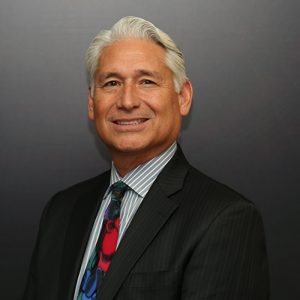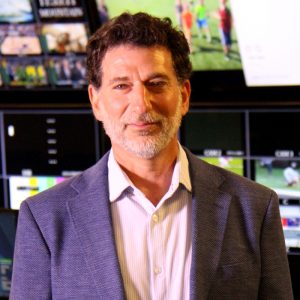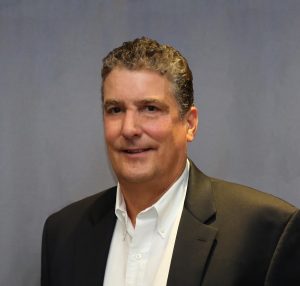SVG Sit-Down: Diversified Maintains Proactive Approach During Time of Uncertainty
With offices in multiple countries, the company is adhering to different sets of rules
Story Highlights
Founded in 1993, Diversified has emerged as a partner with more than 50 offices serving a dynamic and diverse global clientele. Since its inception, the technology-solutions provider has been involved with professional venues, like Chase Center, Mercedes-Benz Stadium, and Coors Field and college-level programs and entities, including Baylor University, Texas A&M, and Pac-12 Networks.
In the time of the coronavirus, every aspect of the sports-video–production community is feeling the effects. In this case, in-venue production of any kind has been halted after major sports leagues began postponing or canceling high-profile events. SVG had the chance to speak with Duane Yoslov, SVP, sports and live events, Diversified; Anthony Cuellar, SVP, global marketing, Diversified; and Chris Sullivan, VP, business development, sports and live events, Diversified, about how business is continuing during this sports hiatus, how safety protocols are being developed for all employees, and how the company is planning for a future when live events return.
How is the company continuing to communicate with clients? How is the team adopting new ways to attract new clients?
Anthony Cuellar: Our sports and live-events team is one of our key specialties, but, for many years, we have also been working with clients in corporate, education, government, and many other verticals to provide communication and collaboration solutions. We’ve used these same solutions to stay connected via virtual rooms in Zoom, [Microsoft] Teams, and [Cisco] WebEx. It has been really interesting for us because, as the markets changed, we’re in a position where our customers and clients have started to request solutions immediately.

Diversified’s Anthony Cuellar: “Safety has been part of our DNA from the beginning. We have a safety officer as part of our organization and immediately put plans in place that met the guidelines from WHO and CDC.”
Initially, we set up a COVID-19 page on our website for business continuity, to inform and share solutions that we’re offering free of charge to customers to cope with this. That’s one way that we started to provide communication and collaboration tools with our clients. This has helped during the crisis and how we’ve approached it across all of our business lines internally as well as externally.
Chris Sullivan: We’ve done a lot of before, but now it has become the [common] way of doing business. Since everybody is starting at 8:00 in the morning, it seems like the calls are running right through 9:00 at night, so it hasn’t slowed down. We’ve stayed really busy, but it’s in a different way.
How have travel and operations been affected since the lockdown? What guidelines are being put in place to ensure a safe working environment for all involved?
Duane Yoslov: We were very early to implement travel restrictions related to [coronavirus]. We have offices in Seoul, Tokyo, and several in Australia. [These were] some of the places that were hit early and had significant impact, so that put it on the radar very early for us. Our team was able to start putting safety protocols in place, which included travel restrictions in advance of state and federal guidelines for travel. That [decision] helped keep our staff safe throughout all of this.

Diversified’s Duane Yoslov: “Since real estate is always at a premium, there are a lot of concepts stirring around on how to minimize the footprint of the overall control room.”
[Because] our business has been deemed an essential business under the federal guidelines, many of our job sites were able to continue until broader restrictions were put in place; some are continuing to run. We’ve told our employees, “If you don’t feel safe and don’t want to go into work, we absolutely encourage you to stay home.” We want to take care of those people along the way.
AC: A lot of [our projects] have been with federal clients, so we’ve been able to get that work done. Safety has been part of our DNA from the beginning in terms of protecting our team. We have a safety officer as part of our organization and immediately started to put plans in place that met all of the particular guidelines from WHO and CDC. We’ve continued to expand those [guidelines], so it has been a herculean effort from everybody involved.
Are your active projects continuing, or have they been put on hold?
DY: The travel restrictions have caused a profound impact on our active projects. In total, more than 300 job sites were affected globally. A small handful of those were sports or stadium projects, so we’ve regrouped, come up with contingency plans, and kept our teams intact for the most part that are servicing those projects. We’re reacting day-by-day as the environment changes.
AC: There was a security project in California that would normally have been installed by our team in Virginia. They weren’t able to travel people, but it was a mission-critical job, and something that had to be done. We were able to take the expertise of our local AV team in California and have them do the implementation and get the work done for our clients while not having to travel. Those are the types of projects where we have been able to work across the country since we have so many offices.

Diversified’s Chris Sullivan: “We [currently] have people onsite at Texas Rangers’ [Globe Life Field] and [SoFi Stadium]. We’re taking the necessary steps at these sites [employees are] as safe as possible.”
Has the coronavirus forced the company to think differently about how control rooms are constructed? What new technologies can potentially aid remote workflows?
DY: The construction and requirements of a control room are built around fan engagement, but, when considering other technologies that will enable these production crews to continue to engage their fans through live production and production of digital or OTT content, there are a lot of different concepts and proposals. Our media-workflow group is engaging with production teams about technologies that allow remote editing in the cloud.
As for the physical control room, we’ve been talking about physical barriers or personal protection gear but not in terms of reshaping the layout of the rooms. While we don’t know how long this will impact venues or production, there will be an end to this since vaccines and other medical therapies are in rapid development. Most of our efforts are focused on a more temporary solution than redesigning a room. Since real estate is always at a premium, there are a lot of concepts stirring around on how to minimize the footprint of the overall control room.
